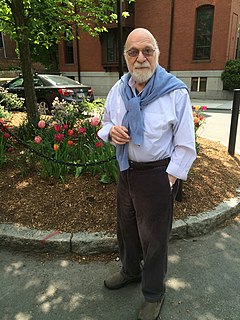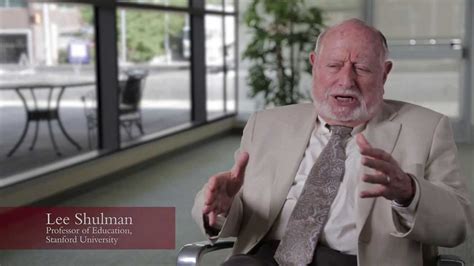A Quote by Roger Scruton
A philosophy that begins in doubt assails what no-one believes, and invites us to nothing believable
Quote Topics
Related Quotes
When one begins to reflect on philosophy—then philosophy seems to us to be everything, like God, and love. It is a mystical, highly potent, penetrating idea—which ceaselessly drives us inward in all directions. The decision to do philosophy—to seek philosophy is the act of self-liberation—the thrust toward ourselves.
We cannot begin with complete doubt. We must begin with all the prejudices which we actually have when we enter upon the study ofphilosophy. These prejudices are not to be dispelled by a maxim, for they are things which it does not occur to us can be questioned. A person may, it is true, in the course of his studies, find reason to doubt what he began by believing; but in that case he doubts because he has a positive reason for it, and not on account of the Cartesian maxim. Let us not pretend to doubt in philosophy what we do not doubt in our hearts.
Every day God invites us on the same kind of adventure. It's not a trip where He sends us a rigid itinerary, He simply invites us. God asks what it is He's made us to love, what it is that captures our attention, what feeds that deep indescribable need of our souls to experience the richness of the world He made. And then, leaning over us, He whispers, "Let's go do that together.
I intend Deaths in Venice to contribute both to literary criticism and to philosophy. But it's not "strict philosophy" in the sense of arguing for specific theses. As I remark, there's a style of philosophy - present in writers from Plato to Rawls - that invites readers to consider a certain class of phenomena in a new way. In the book, I associate this, in particular, with my good friend, the eminent philosopher of science, Nancy Cartwright, who practices it extremely skilfully.
Philosophy... is indeed outrageous, inherently so. It seeks to disquiet the foundations of our lives and to offer us in recompense nothing better than itself- and this on the basis of no expert knowledge, of nothing closed to the ordinary human being, once... [one] lets himself or herself be informed by the process and ambition of philosophy.
Morality must be the heart of our existence, if it is to be what it wants to be for us. The highest form of philosophy is ethics. Thus all philosophy begins with "I am." The highest statement of cognition must be an expression of that fact which is the means and ground for all cognition, namely, the goal of the I.
Voices of the glorified urge us onward. They who have passed from the semblances of time to the realities of eternity call upon us to advance. The rest that awaits us invites us forward. We do not pine for our rest before God wills it. We long for no inglorious rest. We are thankful rather for the invaluable training of difficulty, the loving discipline of danger and strife. Yet in the midst of it all the prospect of rest invites us heavenward. Through all, and above all, God cries, "Go forward!" "Come up higher!






































